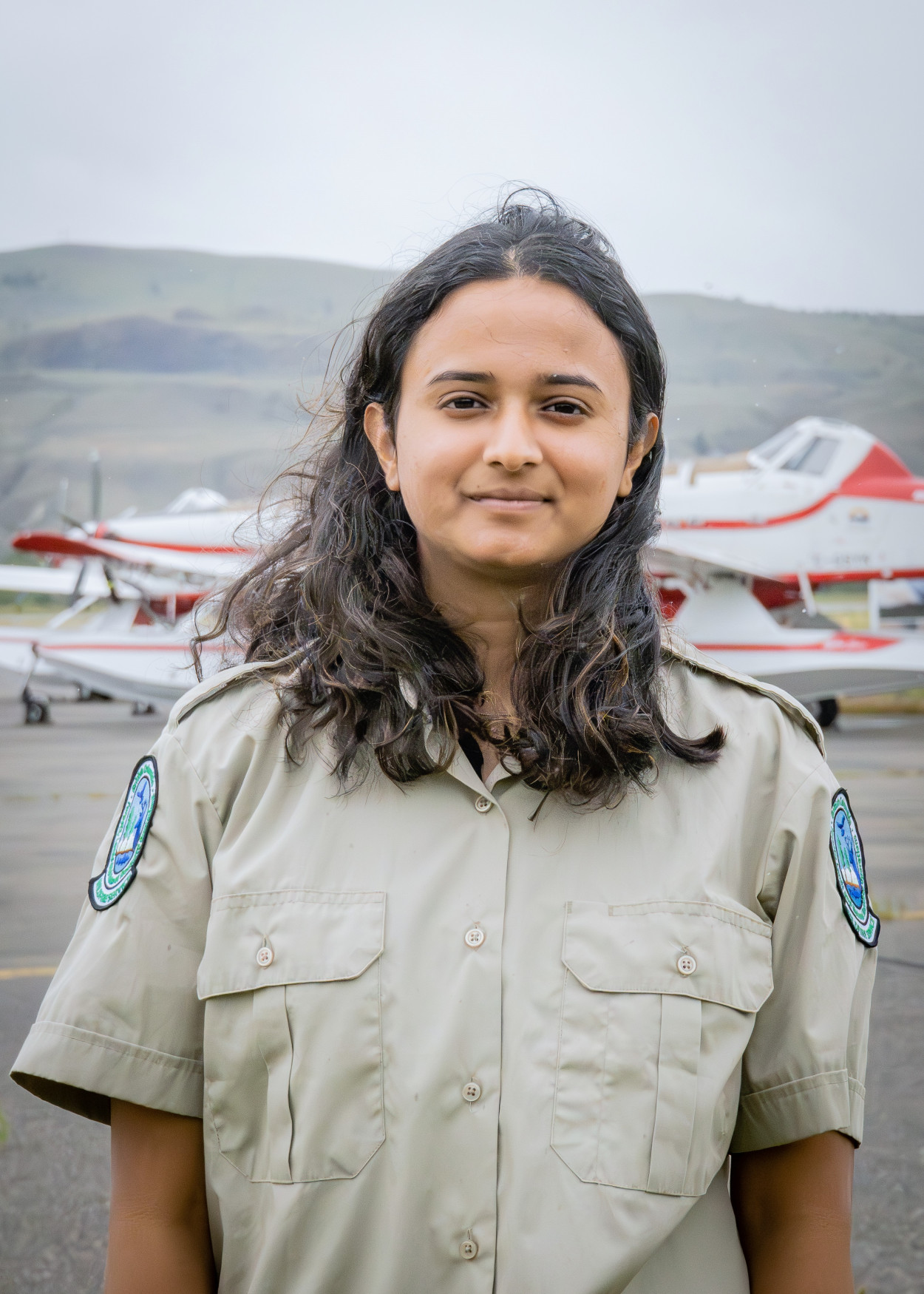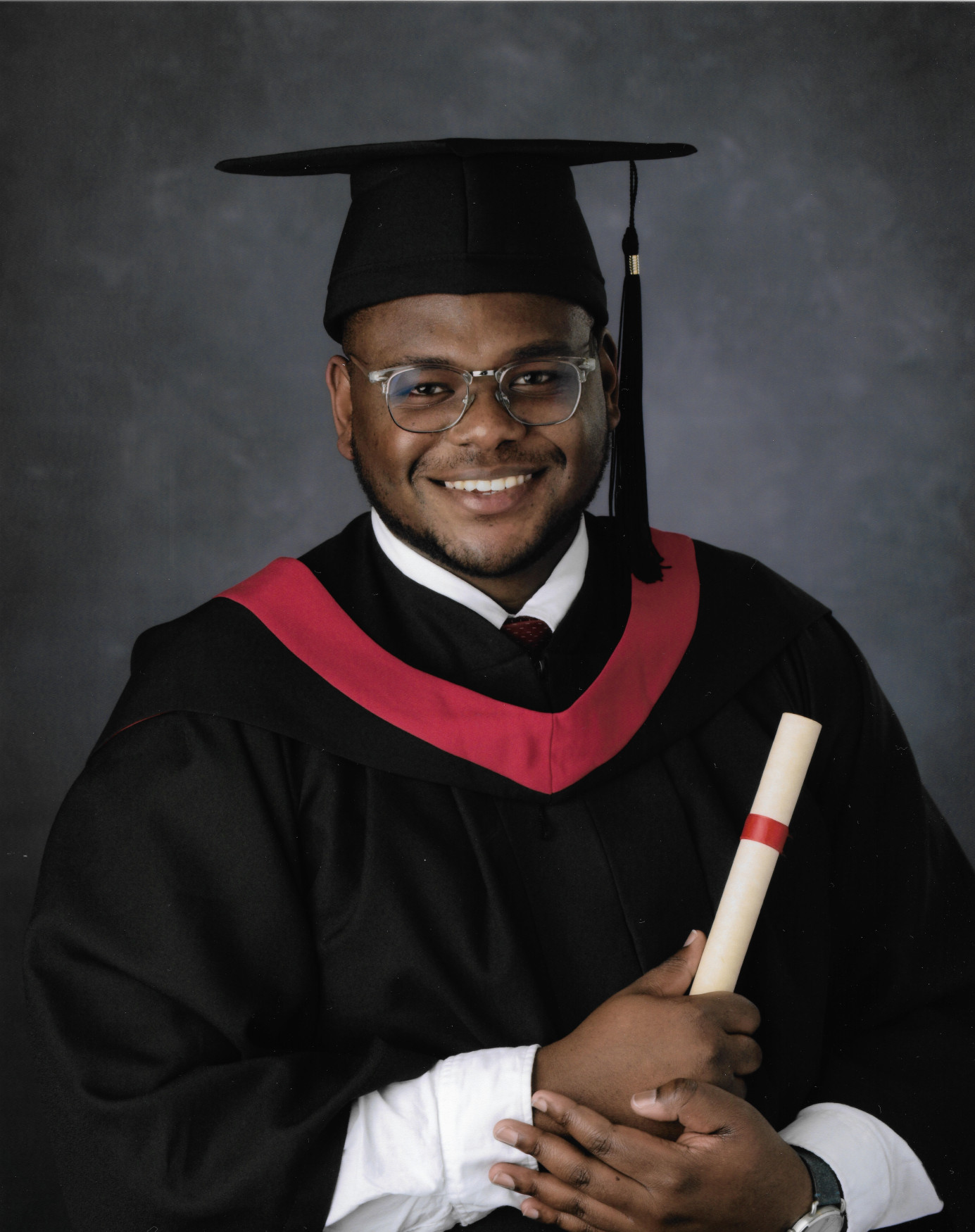Gurjit Kaur is a fourth-year Bachelor of Science in Data Science student from Uganda who started her TRU journey in 2020. She recently completed a co-op term as a technical services analyst contracted by the BC Wildfire Service (BCWS), ending in December 2023. Kaur had the opportunity to work alongside TRU alum Mwansa Kaunda as her supervisor. Kaunda was an international student from Zambia who came to TRU in 2014. He received his bachelor’s degree in computing science with a co-op designation in 2019. Kaunda is now a team lead in technology services for the Natural Resource Information and Digital Services (NRIDS) and runs BC Wildfire’s field IT department. Together, they discuss the value of co-op, mentorship, patience and Career and Experiential Learning (CEL).
-

Gurjit Kaur
Support systems for success
Within this role, Kaur had the opportunity to work on many unique projects over the eight-month term. “My responsibilities are to help navigate the IT issues at the fire centre, ensuring everything’s running smoothly and supplying laptops to everyone during fire season. We’re available to all the team members that come in, ensuring they have all the access they require and can do the job.”
Before landing this position, Kaur found a robust support system during her co-op journey with co-op co-ordinator Leanne Mihalicz. “I was so bent on trying to find something within data science, and we couldn’t find anything, but Leanne was certain we could find something,” Kaur said. Mihalicz encouraged her to explore available jobs that Kaur didn’t even know existed and helped her customize her resume for the BCWS.
“Exploration of career and self is the essence of co-operative education. It allows students to discover strengths, interests, and abilities. Gurjit is an example of a student who embraced this opportunity and applied for a co-op work term outside her comfort zone. It was amazing to hear how the experience impacted her career development, introducing her to new possibilities where she developed new skills, interests, and knowledge, Mihalicz said.
Now a professional who supports student employees amongst other staff members, Kaunda also reflected on who supported him as an undergrad. “Kevin O’Neill, Sarah Ladd and Nancy Bepple were huge advocates for me, finding placements, offering encouragement and ensuring that I was successful in my career at TRU and beyond. Computing Science was evolving at the end of my degree when they implemented and gave credits for co-op, and I want to thank that entire department.”
-

Mwansa Kaund
“As educators, we hope the material we teach students ripples outwards and creates an impact,” Sarah Ladd, then a co-op co-ordinator for engineering. “When you meet and work with a student like Mwansa, you know immediately that you’ve met someone who embodies global citizenship and will humbly and joyfully offer his learning to others. I am not surprised to hear that, as a manager, he is sharing his knowledge and various experiences to mentor someone new to the field, and I am confident that he will transmit that same spark to Gurjit. Five to 10 years from now, she’ll cast that ripple further into the world through those she mentors.”
Adjust expectations
With support, training, and guidance, students can better meet workplace expectations faster and more successfully. Relationship building is critical for fostering curiosity and a sense of community so students can feel comfortable asking questions and seeking information. Providing ongoing opportunities to check in offers a sense of clarity for a student and reduces the odds of their days going around in circles, feeling unprepared and disengaged.
Kaunda understood that university programming can provide the skills to prepare you for the workforce, but quickly learned you have to take those tools and adjust them for your workplace. “I realized you must weave those concepts together in the working environment. At first, I didn’t understand that. I thought that when I graduated, I would be someone’s boss in two months. I was like, ‘Oh yeah, for sure I could do that person’s job,’ and it turned out that there’s a lot more to that,” he laughed. “There was a lot to learn about intercultural communication styles, and not in the sense of one person from one country or specific culture, but individual and workplace culture.”
Growing in leadership
As a former co-op student, Kaunda learned more about himself and how to be a successful and thoughtful leader in the workplace. He recognized that every student’s needs are different and how important it is to lead with that context in mind. “Providing equitable but not necessarily equal opportunities is paramount to impactful leadership. Every student is very different in how they process, produce, and communicate, and for every co-op that comes up, I must understand their needs and learning styles,” Kaunda said.
Reflecting on her onboarding experience, Kaur noted, “On my first day, Mwansa, knowing I’d never worked in government before, explained everything from acronyms to organizational structure. Putting all those pieces together early makes you understand the whole system and where you fit within that framework.”
Kaur also elaborated on how, between extensive training and her can-do spirit, she felt prepared for any situation, which is critical when working in a fast-paced emergency services environment like BCWS. She enjoyed the centre’s supportive and positive working environment and had opportunities to learn and work on the road by travelling across the province. “The work term offered a wide variety of fun and exciting projects; I’ve been on eight deployments altogether.”
Kaunda reflected on how working with students provided opportunities for his growth as a leader and that they taught him how to support others, read situations, and create space. “Trying to give back to students is about understanding that sometimes the best help you can give is no help, which I sometimes struggle with. I have to take a step back and allow the co-ops to ask me the questions, not be the driving force because some co-ops need that, and some don’t. And I had to respect that as well.”
While given space to problem-solve and think critically about any task, Kaur felt like there was a safety net of support beneath that feeling of independence. “Being able to ask for help is reassuring, and I never shied away from asking for help. Mwansa frequently checked my comfort levels around particular assignments, especially when I was driving long-distance across the province.”
Applying work term to the real world
Part of employment in a co-op work term is meeting and learning from people at different checkpoints in their professional lives. By the end, you leave with experiences and a whole new perspective. Whether that experience was positive or disappointing, it affects how a student engages and communicates with others within and outside the workplace. It’s important to note how much a student will absorb; it’s not just about procedures and best practices but attitudes, empathy, and respect. Considering how Kaunda, a former co-op, applies his experiences to supporting Kaur and how she might take that learning into her leadership style indicates the chain of generational connectedness. Being new to a job and the workforce can be daunting — and yet, being in a safe space to learn, make mistakes, try again and repeat until you’re more confident and equipped.
Learn more about Career Services and Co-operative Education online, or book an appointment by emailing careereducation@tru.ca, dropping by Old Main 1712 or calling 250-371-5627.

